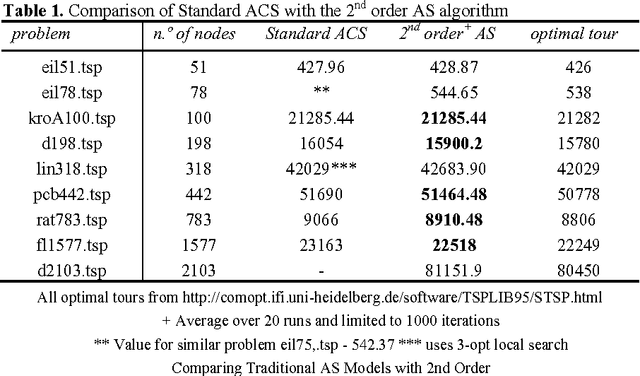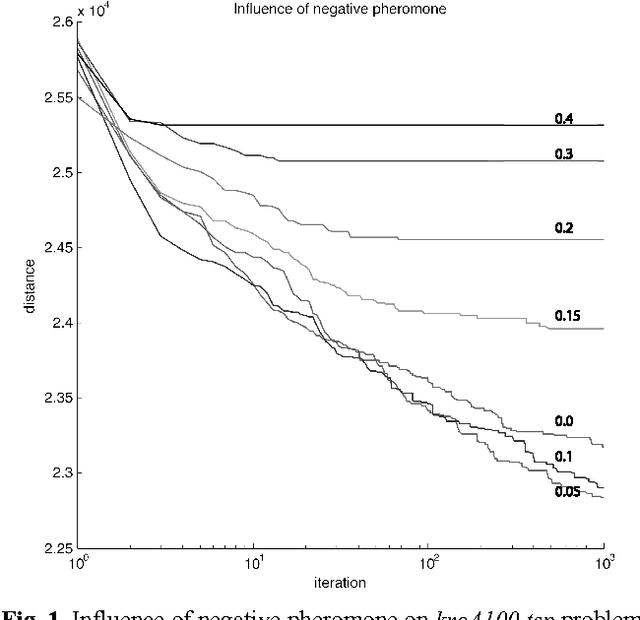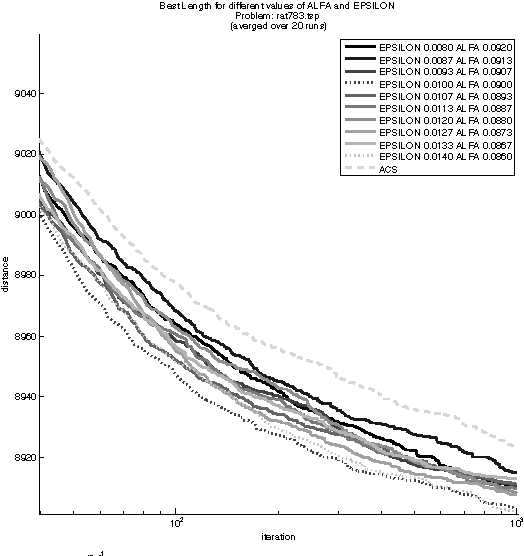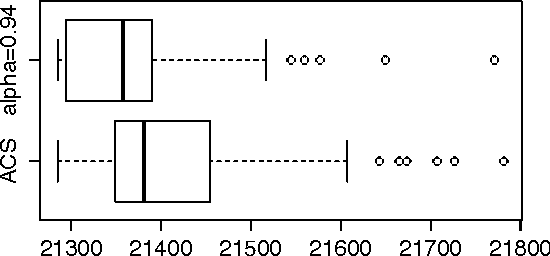Second Order Swarm Intelligence
Paper and Code
Jun 13, 2013



An artificial Ant Colony System (ACS) algorithm to solve general-purpose combinatorial Optimization Problems (COP) that extends previous AC models [21] by the inclusion of a negative pheromone, is here described. Several Travelling Salesman Problem (TSP) were used as benchmark. We show that by using two different sets of pheromones, a second-order co-evolved compromise between positive and negative feedbacks achieves better results than single positive feedback systems. The algorithm was tested against known NP-complete combinatorial Optimization Problems, running on symmetrical TSP's. We show that the new algorithm compares favourably against these benchmarks, accordingly to recent biological findings by Robinson [26,27], and Gruter [28] where "No entry" signals and negative feedback allows a colony to quickly reallocate the majority of its foragers to superior food patches. This is the first time an extended ACS algorithm is implemented with these successful characteristics.
 Add to Chrome
Add to Chrome Add to Firefox
Add to Firefox Add to Edge
Add to Edge